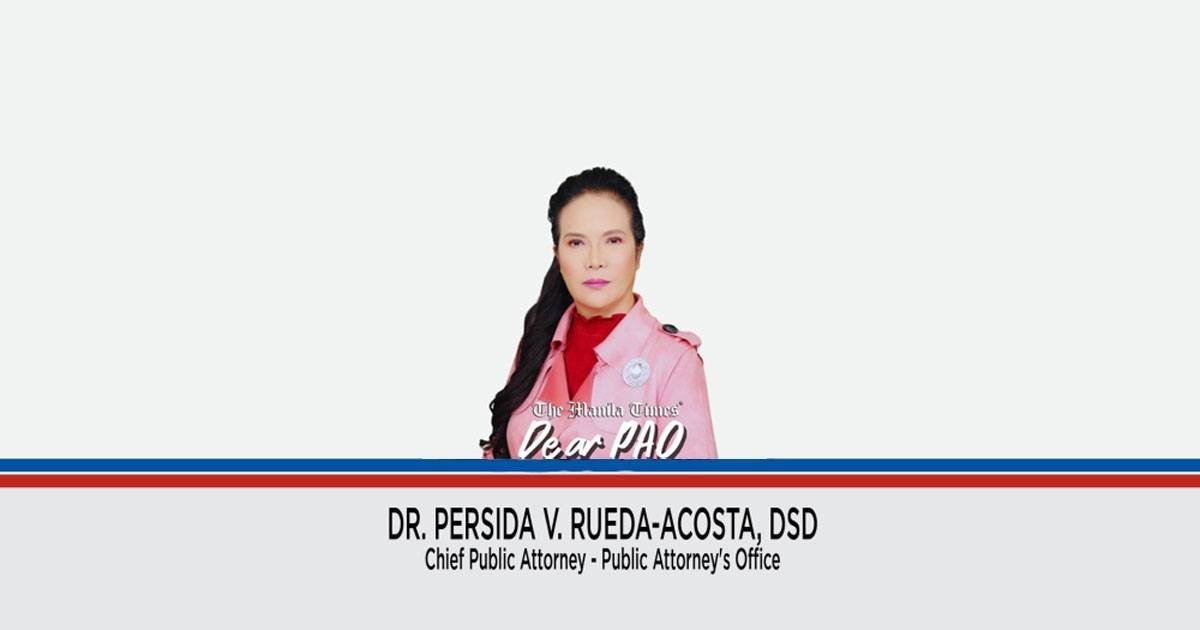Dear PAO,
My sister is an elementary school teacher in a Catholic educational institution. She has been employed by the school on probationary status for 10 months. On her fifth month of employment, she found out that she was seven weeks pregnant. She immediately informed the school of her pregnancy and her plan to marry her long-term boyfriend. However, my sister is afraid that she may be dismissed from her work because of her pregnancy outside of marriage. Could the school dismiss her on the grounds of the pregnancy, allegedly for being disgraceful or immoral?
Vincent
Dear Vincent,
To clarify, pre-marital sexual relations between two consenting adults who have no impediment to marrying each other and, consequently, conceiving a child out of wedlock, gauged from a purely public and secular view of morality, does not amount to disgraceful or immoral conduct under Section 94(e) of the 1992 Manual of Regulations for Private Schools. (Cheryll Santos Leus v. St. Scholastica’s College Westgrove; GR 187226; Jan. 28, 2015; Ponente: Associate Justice Bienvenido Reyes)
Article 135 (2) of Presidential Decree No. 442, as amended, otherwise known as the “Labor Code of the Philippines,” provides that it shall be unlawful for any employer: xxx
“2. To discharge such woman on account of her pregnancy, or while on leave or in confinement due to her pregnancy; xxx.”
In addition, the Magna Carta of Women (Republic Act 9710) also guaranteed every woman’s right to “Equal Access and Elimination of Discrimination in Education, Scholarships, and Training.” Section 13 (c) of Republic Act 9710 specifically states that:
“Section. 13 (c) Expulsion and non-readmission of women faculty due to pregnancy outside of marriage shall be outlawed. No school shall turn out or refuse admission to a female student solely on the account of her having contracted pregnancy outside of marriage during her term in school.”
Furthermore, as explained by the Supreme Court, through Associate Justice Noel Tijam, in the case of Union School International v. Dagdag, GR 234186, Nov. 21, 2018, which reiterated the decision in Capin-Cadiz v. Brent Hospital and Colleges Inc., GR 187417, Feb. 24, 2016:
“Jurisprudence has already set the standard of morality with which an act should be gauged — it is public and secular, not religious. Whether a conduct is considered disgraceful or immoral should be made in accordance with the prevailing norms of conduct, which, as stated in Leus, refer to those conducts which are proscribed because they are detrimental to conditions upon which depend the existence and progress of human society. The fact that a particular act does not conform to the traditional moral views of a certain sectarian institution is not sufficient reason to qualify such an act as immoral unless it, likewise, does not conform to public and secular standards. More importantly, there must be substantial evidence to establish that premarital sexual relations and pregnancy out of wedlock are considered disgraceful or immoral.”
Thus, in the situation you mentioned, your sister cannot be dismissed from her work on the grounds of being disgraceful or immoral due to her pregnancy without the benefit of marriage alone. As discussed above, the standard of morality with which an act should be gauged is public and secular, not religious. As declared by the Supreme Court in Union School International v. Dagdag, the “pregnancy of a school teacher out of wedlock is not a just cause for termination of an employment absent any showing that the pre-marital sexual relations and, consequently, pregnancy out of wedlock, are indeed considered disgraceful or immoral.”
We hope that we were able to answer your queries. This advice is based solely on the facts you have narrated and our appreciation of the same. Our opinion may vary when other facts are changed or elaborated.
Editor’s note: Dear PAO is a daily column of the Public Attorney’s Office. Questions for Chief Acosta may be sent to [email protected]

